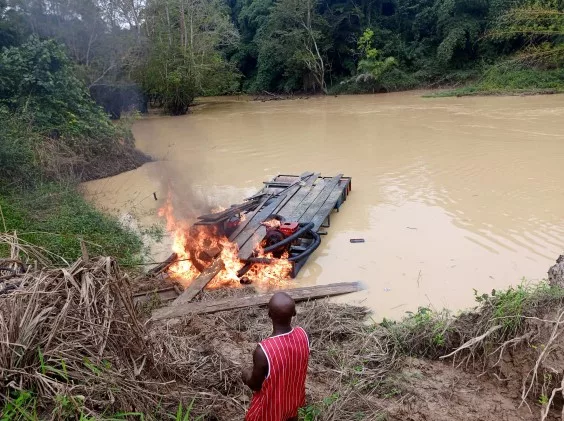Galamsey Water Turbidity Still Alarming — Experts Urge Total Ban on Illegal Mining Activities

The persistent high turbidity levels in major rivers across Ghana have renewed calls from environmental experts, civil society groups, and traditional leaders for the government to impose a total ban on all forms of small-scale and illegal mining (galamsey) until the country restores its severely degraded water bodies.
Recent assessments by the Water Resources Commission (WRC) and Ghana Water Company Limited (GWCL) reveal that turbidity levels in key rivers — including the Pra, Offin, Ankobra, Tano, and Birim — remain dangerously above safe treatment limits, despite multiple government operations aimed at curbing illegal mining.
Water Quality at Breaking Point
According to WRC’s latest report, turbidity readings in parts of the Pra and Offin Rivers exceeded 1,500 NTU (Nephelometric Turbidity Units) — far above the recommended safe limit of 5 NTU for potable water.
This means that even advanced water treatment plants cannot purify the water efficiently, leading to higher chemical costs, pipeline corrosion, and reduced lifespan of filtration systems.
Officials at GWCL have warned that if the current pollution trend continues, some treatment plants may be forced to shut down, especially in the Western and Ashanti Regions where mining activities remain intense.
“The level of pollution has become unbearable. The turbidity and metallic content of these rivers show that illegal mining is still ongoing, day and night, with devastating impact,” said a senior hydrologist at the WRC, who spoke anonymously to Nsemgh.
Government Efforts Questioned
Despite several national initiatives — including Operation Halt II, the creation of River Guards, and the introduction of the Community Mining Scheme — critics say the results remain largely cosmetic.
Environmental advocacy groups such as Friends of the River Basin and Occupy Ghana Green Movement argue that partial enforcement and political interference have weakened anti-galamsey efforts.
“The government must stop pretending to regulate what cannot be regulated. Galamsey, in its current form, cannot coexist with sustainable water protection. A complete ban is the only realistic solution,” said Dr. Vida Nyarko, an environmental scientist with the University of Cape Coast.
Communities Paying the Price
In affected areas, farmers complain of infertile lands, dying fish populations, and contaminated boreholes. Women and children in mining zones walk long distances daily in search of clean water, while hospitals report a rise in skin diseases, diarrhea, and heavy metal poisoning.
“Our cocoa farms are gone, the water we drink is brown, and our children fall sick every week,” lamented Nana Yaw Owusu, a resident of Dunkwa-on-Offin.
Call for Stronger Leadership
Experts have proposed that the government:
- Enforce an indefinite moratorium on all small-scale mining until a credible environmental audit is completed.
- Deploy drone surveillance and satellite monitoring of mining concessions.
- Create a national restoration fund dedicated to river dredging and reforestation.
- Criminalize political protection of illegal miners.
“We have reached the point where only decisive, uncompromising action can save our rivers. It’s not just an environmental issue — it’s a national security threat,” stated Prof. Kwame Frimpong, an environmental policy analyst.
The Way Forward
As Ghana prepares for the next rainy season, environmental experts warn that continued galamsey activity could lead to irreversible river siltation, increased flooding, and long-term ecological collapse.
For now, the verdict is clear: until illegal mining is fully suspended and punished, Ghana’s rivers — once the lifeline of its people — will continue to flow thick with mud instead of life.
📰 By Nsemgh News Desk
For updates on Ghana’s environmental and sustainability issues, visit www.nsemgh.com

